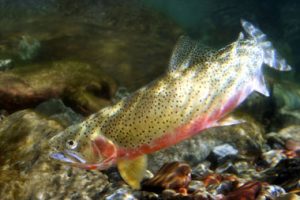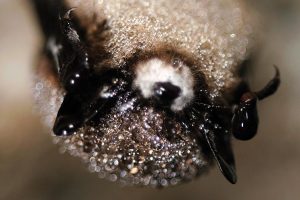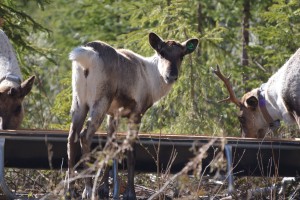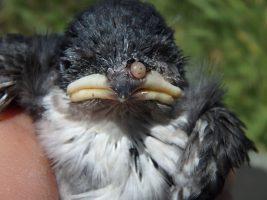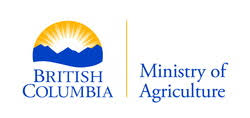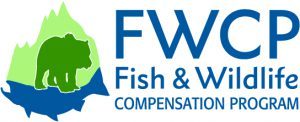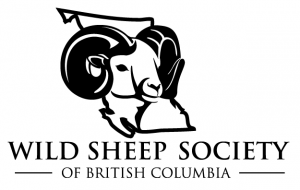Interdisciplinary Approaches to Managing Health of Fish and Wildlife
- Start Date: May 01, 2018
- End Date: May 02, 2018
- City: Kimberley BC
- Venue: Kimberley Conference and Athlete Training Centre
Event Proceedings
A summary of event presentations and number of presentation recordings can be found in this proceedings document. Please feel free to share this with others.
Event Description
The expanding footprint of humans increasingly alters the complex dynamics of wildlife health and disease, which can threaten wildlife populations. An unprecedented rate of emergence and re-emergence of infectious disease has been enabled via transport of organisms, environmental degradation, and by other factors that compromise ecological stability, including climate change. In Western North America, population-threatening diseases are occurring in fish and wildlife at an increasing rate, presenting significant conservation challenges.
To ensure proactive conservation of wildlife populations, there is a need for cross-discipline sharing of information on current disease issues by governments, communities, scientists, wildlife managers, the agriculture industries, public health, and stakeholders from all sides.
This upcoming conference will provide an opportunity for improved dialogue among experts: First Nations, veterinarians, academics, epidemiologists, wildlife biologists, stakeholders, managers, stewardship groups, and the public. Experiences with successful citizen science and disease-reporting tools will be shared. New research on the role of climate change and variables that help predict disease outbreaks will be of interest to species-specific disease monitoring and management efforts.
The following invited speakers helped to frame this event:
Dr. Glenna McGregor, BC Animal Health Centre – BC Ministry of Agriculture, Veterinary Pathologist. A Walk on the One Health Wild Side: how wildlife health knowledge can help with human health
Dr. Vikram Misra, Western College of Veterinary Medicine. Bats: threatening or threatened? Bat health and how it may directly impact human health
Dr. Tom Okey, Ocean Integrity Research, University of Victoria Environmental Studies, and the Local Environmental Observer (LEO) Network & Linda Pillsworth, First Nations Health Authority. The Local Environmental Observer (LEO) Network for surveillance of ecological changes
Bill Oestreich, Tahltan Guide Outfitters Association. Local communities working together for the betterment of wildlife in rural British Columbia
Dr. Helen Schwantje, BC Wildlife Health Program – BC Ministry of Forests Lands and Natural Resource Operations, Wildlife Veterinarian. From Bighorns to Bats and Everything In Between: Year 25 of a Wildlife Vet’s Story
Dr. Craig Stephen, Canadian Wildlife Health Cooperative, Chief Executive Officer. From Monkeys to Salmon: Harm reduction as an approach out of stagnation in wildlife health management
Event partners & sponsors
Columbia Mountains Institute is pleased to work with these organizations in hosting this event: Canadian Wildlife Health Cooperative, BC Animal Health Centre – BC Ministry of Agriculture, BC Wildlife Health Program – BC Ministry of Forests Lands and Natural Resource Operations, and the BC Sheep Separation Program.
We give thanks to these organizations for their financial support of this event: Columbia Basin Trust, Wild Sheep Foundation, Fish and Wildlife Compensation Program, Vast Resource Solutions, and Wild Sheep Society of BC.


![]()

